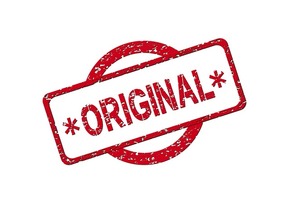the Levine ENTERTAINMENT
LAW & Business Monitor
Bringing you information, musings, and periodic rants on a variety of entertainment, intellectual property, and business topics.
 As discussed in previous posts, the importance of properly clearing a mark before using it in commerce cannot be overstated. Indeed, failing to investigate the availability -- and registrability -- of a desired mark can lead to costly and time-consuming problems. Because most publicly known trademark cases tend to involve infringement, most individuals and businesses recognize the danger associated with infringing another party's mark. However, the concept of trademark dilution is foreign to many. In general, trademark infringement requires the unauthorized use of an existing mark (or a similar mark), which causes "likelihood of confusion" among consumers as to the source of goods or services (i.e., a consumer makes a purchase decision based on a particular brand, thinking he is purchasing the item from the intended source, when in fact it comes from a different, and typically substandard, source). Although each infringement case is unique, generally, a mark can only receive protection against competing and commonly associated goods or services. For example, if one uses the mark ACME to identify jet-powered roller skates, the owner of the mark likely could not prevent another party from using ACME to identify jelly beans. The owner should, however, be able to prevent another party from using ACME to identify jet-powered skateboards, based on the likelihood of consumer confusion. Thus, trademark infringement requires a showing that the public is likely to confuse an infringed party's goods or services with the infringing party's goods or service. Unlike infringement, trademark dilution is based on the idea that any use of a very well-known mark -- even to identify goods and services unrelated to those connected with the original mark -- will weaken or “dilute” the original mark. Broadly speaking, dilution occurs when a mark is "tarnished" or "blurred" because of the second use. Tarnishment refers to the stigma arising from the public's inaccurate association of a particular mark with another party's questionable or inferior goods or services. In other words, the perception that the mark is being used to identify certain goods or services causes damage to the reputation and goodwill of the original mark and its owner. Blurring is a broader concept, under which the mere use of a mark to identify any goods or services besides those offered by the mark's owner causes the mark to lose its distinctiveness and definitive association with the original goods or services. Although many states had antidilution statutes at the time, trademark dilution became a matter of federal law when Congress passed the Federal Trademark Dilution Act of 1995 (the "FTDA"), codified at 15 U.S.C. § 1125(c), which was amended extensively in 2006 with the passage of the Trademark Dilution Revision Act (the "TDRA"). Under the FTDA and many similar state statutes, only "famous" marks are eligible for antidilution protection. Thus, the threshold question is whether a particular mark is "famous." Generally, for a mark to be considered famous, it must be very strong and broadly known. Under the TDRA, famous marks are those that are "widely recognized by the general consuming public of the United States" as an indication of the source of particular goods or services. In other words, a mark must be famous in general across the country, and cannot be limited to a particular geographic region or type of consumer (e.g., purchasers of automobiles). Few marks meet this strict standard for federal protection. However, under some state antidilution statutes, a mark might be subject to antidilution protection based on so-called "niche fame." The issue must be examined in the context of a particular mark, its specific use, and the applicable state law. Although trademark dilution protection extends to far fewer marks than infringement protection, it is an important concept for businesses and individuals to consider, particularly during the mark selection process. The potential for dilution of famous marks is one of several factors that trademark lawyers consider during the trademark clearance stage.
0 Comments
Your comment will be posted after it is approved.
Leave a Reply. |
AuthorL. Kevin Levine is the founder of L. Kevin Levine, PLLC (go figure), a boutique entertainment, copyright, trademark, and business law firm in Nashville, Tennessee. A lifelong musician who grew up in his family's music store, it was inevitable that Kevin would build his legal career in entertainment and business. Archives
June 2016
Categories
All
|
Contact Us
Phone: 615.600.4765
Connect With Us
|
Office Location1033 Demonbreun Street, Suite 300
Nashville, TN 37203 By appointment only. Conveniently located in Nashville's vibrant Gulch district, just off Music Row and minutes from Downtown.
|
